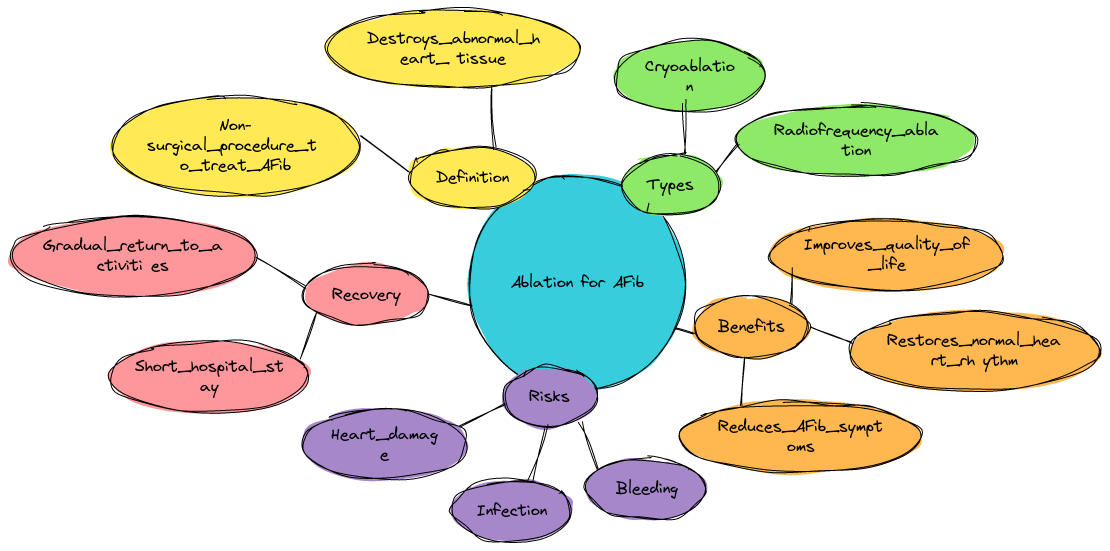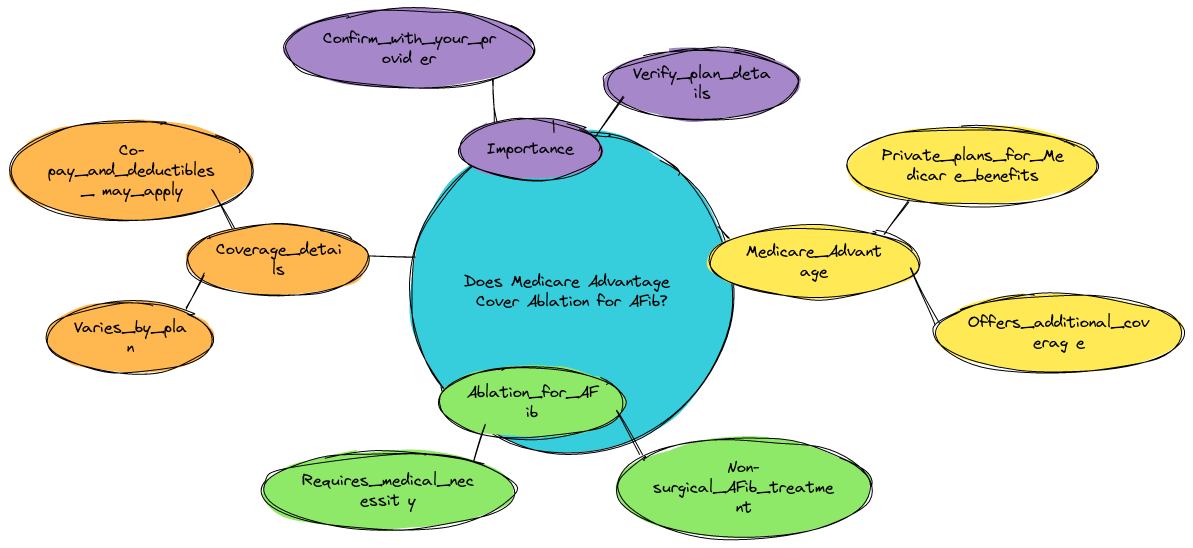If you’ve got Atrial Fibrillation (or AFib for short) you’ve probably heard about ablation as a treatment option. It’s a procedure that helps get your heart beating regularly again by zapping some areas of the heart that are messing up the rhythm. But the big question for many folks is this: Does Medicare cover ablation for AFib? We’re here to break it down simply so you can understand your options without getting bogged down by confusing medical talk.
What’s Ablation for AFib?
Before we dive into Medicare—let’s quickly explain what ablation is. When you have AFib your heart’s electrical signals are all over the place which causes irregular heartbeats. Ablation basically gets rid of the little areas of heart tissue causing the problem. There are two types of ablation:
- Catheter Ablation – A doctor uses a thin tube (catheter) inserted into a vein to destroy the misfiring tissue using heat or cold.
- Surgical Ablation – Done during open-heart surgery when a surgeon physically removes or destroys the tissue.
Both can be pretty effective—but the right one for you depends on your health situation. And yep—Medicare helps cover both.
Find Medicare Plans in 3 Easy Steps
We can help get up to $0 monthly premium Medicare plans
Does Medicare Pay for Ablation?
So the big question—does Medicare foot the bill for ablation? The answer is yes—but like most things with insurance—it’s got some conditions. Here’s how it breaks down:
Medicare Part A (Hospital Insurance)
If you need to be in the hospital for surgical ablation or if your catheter ablation requires a hospital stay—Medicare Part A helps cover it. This includes things like:
- Hospital stays
- Care in a nursing facility afterward (if you need it)
- Some in-home care after the procedure
Just a heads up—you’ll still have to pay the Part A deductible which is $1,632 per benefit period in 2024.
Medicare Part B (Medical Insurance)
If you’re getting catheter ablation as an outpatient procedure—Medicare Part B has your back. It helps cover:
- The procedure itself
- Doctor visits
- Follow-up care after surgery
But Part B only covers 80% of the cost—which means you’re still on the hook for 20% unless you’ve got a Medigap policy or other supplemental insurance.
“We always tell folks at Medicare Advisors Insurance Group LLC to consider a Medigap policy. Those out-of-pocket costs can sneak up on you” says Henry Beltran the owner of Medicare Advisors Insurance Group LLC. “You don’t wanna be surprised with a big bill after taking care of your heart!”
Does Medicare Advantage Cover Ablation for AFib?
If you’re on a Medicare Advantage plan—also called Part C—good news. It’ll cover ablation just like Original Medicare does. The difference is that Advantage plans sometimes have different networks—rules—and costs. So check with your plan or chat with a Medicare advisor to know exactly what’s covered.
Potential Drawbacks
While Medicare covers ablation—there are still a few things to keep in mind:
- Out-of-Pocket Costs: You’ll probably still have some co-pays and deductibles. It’s like fixing your heart but getting your wallet zapped a bit too.
- Approval Processes: If you’re on a Medicare Advantage plan you might need prior approval for the procedure. Yay more paperwork.
- Recovery Time: Ablation isn’t exactly a quick fix. You’ll need some recovery time—and it might take longer than expected. Don’t plan on running marathons right after!
Some Drawbacks of Each Procedure
Let’s make this fun—it’s like choosing a car for your heart. Here’s a lighthearted comparison of the two types of ablation:
- Catheter Ablation: It’s like a hybrid car—gets the job done and is efficient—but you might need to bring it back into the shop if things don’t get fully fixed the first time.
- Surgical Ablation: Think of this like a muscle car—it’s powerful and gets the job done but it’s a bigger commitment. And trust me—it’s not for everyone.
Find Medicare Plans in 3 Easy Steps
We can help get up to $0 monthly premium Medicare plans
What Are Your Other Options?
If you’re not ready to go for ablation—or your doctor thinks there might be a better treatment—here are some alternatives:
- Medications: There are drugs to control your heart’s rhythm and blood thinners to lower your stroke risk.
- Cardioversion: This is basically giving your heart a shock to reset its rhythm (No—it’s not like getting struck by lightning!).
- Lifestyle Changes: Sometimes just adjusting your diet and exercise routine can help cut down on AFib episodes. It might be time to lay off the cheeseburgers.
Need More Info?
Always check with your doctor when considering these options.
Alternative Treatments
Some people do well with medications while others need the extra intervention of ablation. I mean—who wants to take pills forever if you can just fix the problem with one procedure?
Our Advice
At Medicare Advisors Insurance Group LLC we’re here to guide you through your Medicare options and help make the best decision for your health and your wallet.
Find Medicare Plans in 3 Easy Steps
We can help get up to $0 monthly premium Medicare plans
Final Thoughts
If you’re living with AFib and thinking about ablation—rest easy knowing that Medicare has got you covered for the most part. Whether it’s through Part A for hospital stays or Part B for outpatient care—Medicare will take care of the bulk of the costs. But don’t forget—those deductibles and co-pays can still sneak up on you so consider adding Medigap for extra peace of mind.
“We’re all about making Medicare simple and easy to understand. We don’t want anyone stressed out about medical bills while they’re working on getting their heart healthy” says Henry Beltran. “Let’s get your heart back on track without the headaches!”
If you’re still unsure whether ablation is right for you—or just want to chat more about your Medicare options—reach out to Medicare Advisors Insurance Group LLC. We’re here to help you figure it all out—without all the fancy terms and confusing stuff!







